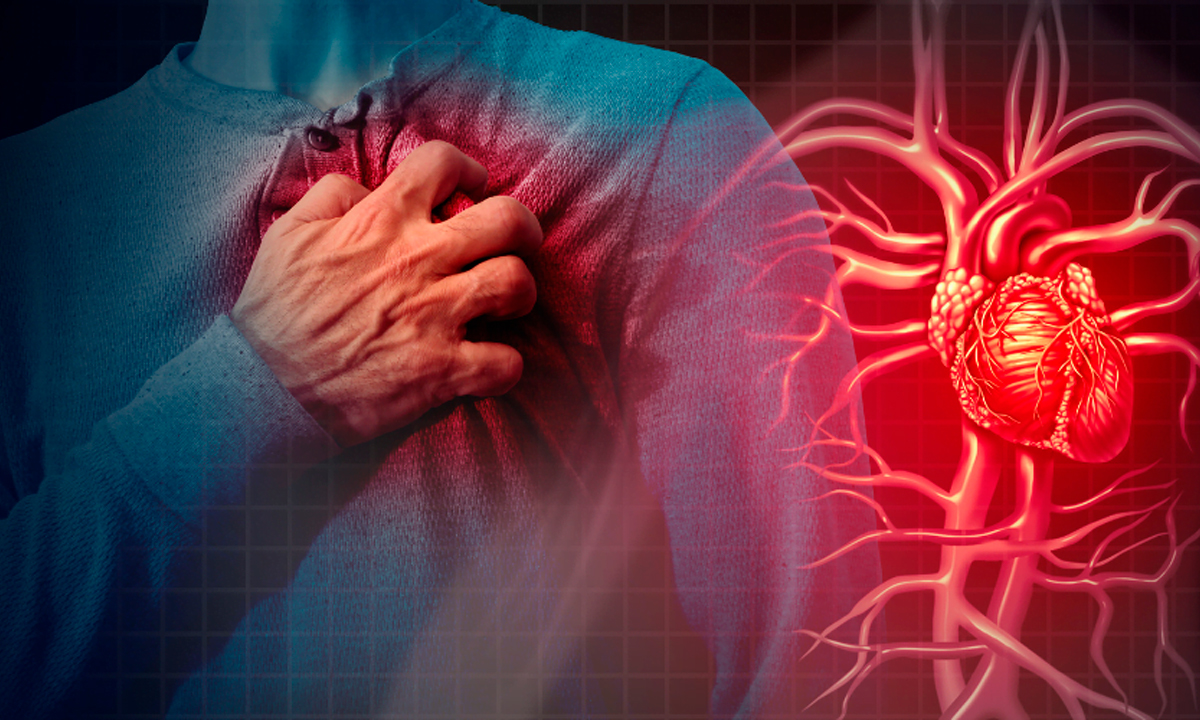Myocardial infarction occurs when the heart muscle in one or more places doesn't receive enough oxygen. When the heart muscle's blood supply is restricted, a myocardial infarction occurs.
There are four different forms of myocardial infarction: unstable angina, coronary spasm, ST-segment elevation myocardial infarction (STEMI), and non-ST segment elevation myocardial infarction (NSTEMI).
Causes of myocardial infarction
- Smoking
- A high-fat diet
- Diabetes
- High cholesterol
- High blood pressure
- Being overweight or obese
According to National Center for Biotechnology Information "The annual number of deaths from Cardio vascular diseases in India is projected to rise from 2.26 million (1990) to 4.77 million (2020). Coronary heart disease prevalence rates in India have been estimated over the past several decades and have ranged from 1.6% to 7.4% in rural populations and from 1% to 13.2% in urban populations."
Symptoms of myocardial infarction
- Chest pain or discomfort
- Pain in the body
- Feeling weak
- Pain or discomfort in one or both arms or shoulders
- Shortness of breath
- Sweating or a cold sweat
Being active and regularly exercising will reduce your blood pressure by maintaining the health of your heart and blood vessels. You should reduce your blood pressure by losing weight and exercising regularly. Engaging in low-impact activities like cycling, swimming, and walking is advised.
Maintaining heart health and reducing the chance of suffering another heart attack are the two main objectives after you get a heart attack. Take your medications as prescribed, adopt a healthy lifestyle, schedule routine heart exams with your doctor, and consider enrolling in a cardiac rehabilitation program.
Lifestyle changes that are needed after a heart attack
- Pay attention to your symptoms
- Control stress
- Limit alcohol
- Cut back on unhealthy foods
- Eat a heart-healthy diet
- Follow an exercise plan
- Stop smoking
If a heart attack is already underway, it cannot be stopped. Seeking emergency medical help is the only way to halt a heart attack. It's normal to feel anxious after having a heart attack because it can be upsetting and scary. Adding raspberries, blackberries, blueberries, or strawberries to your yogurt or cereal will improve heart health. Moreover, Omega-3 fatty acids, fiber, and phytoestrogens in flaxseed also support heart health.
(Disclaimer: The content on this site is for informational purposes only, and should not be taken as professional medical advice. Always seek the guidance of your doctor or other health professionals for any questions you may have regarding your health or a medical condition.)

 Myocardial infarction is another term used for heart attack. After the shocking loss of many celebrities like KK and Sidharth Shukla, heart attacks are seen more commonly in recent days. Medicircle wants to provide you the awareness about it for keeping you and your loved ones healthy and safe.
Myocardial infarction is another term used for heart attack. After the shocking loss of many celebrities like KK and Sidharth Shukla, heart attacks are seen more commonly in recent days. Medicircle wants to provide you the awareness about it for keeping you and your loved ones healthy and safe.









.jpeg)

.jpeg)
.jpeg)

.jpeg)


.jpeg)



.jpeg)
.jpeg)
.jpeg)


.jpg)


.jpeg)
.jpeg)